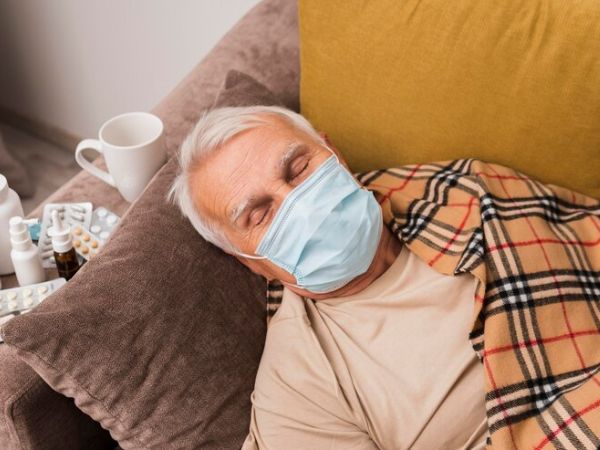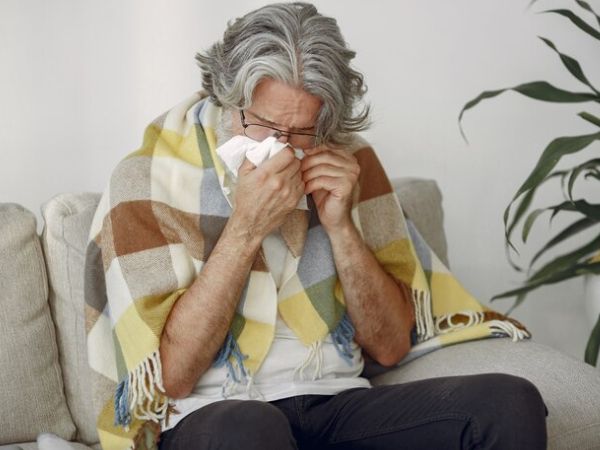Just In
- 4 hrs ago

- 6 hrs ago

- 6 hrs ago

- 6 hrs ago

Don't Miss
- Technology
 HMD Branded First Set of Android Smartphones Are Here!
HMD Branded First Set of Android Smartphones Are Here! - Education
 MP Board Result 2024: Toppers List of Class 10th and 12th is here
MP Board Result 2024: Toppers List of Class 10th and 12th is here - Movies
 Mankatha Re-Release Woes: Ajith-Venkat Prabhu's Action Thriller Faces Issues; To Hit Screens On THIS Date
Mankatha Re-Release Woes: Ajith-Venkat Prabhu's Action Thriller Faces Issues; To Hit Screens On THIS Date - Sports
 Alcaraz: Stopping world's best Sinner not easy in Madrid
Alcaraz: Stopping world's best Sinner not easy in Madrid - News
 Indian MBBS Student, Dasari Chandu, Dies In Kyrgyzstan After Waterfall Mishap
Indian MBBS Student, Dasari Chandu, Dies In Kyrgyzstan After Waterfall Mishap - Finance
 Vodafone Idea FPO: Shares To Debut Tomorrow; GMP Hints Premium Listing; Shares Slump 9%
Vodafone Idea FPO: Shares To Debut Tomorrow; GMP Hints Premium Listing; Shares Slump 9% - Automobiles
 2024 Kia Carens Secures 3-Star Adult & 5-Star Child Safety Ratings – Detailed Look
2024 Kia Carens Secures 3-Star Adult & 5-Star Child Safety Ratings – Detailed Look - Travel
 Mumbai Opens BMC Headquarters For Exclusive Heritage Tour
Mumbai Opens BMC Headquarters For Exclusive Heritage Tour
H3N2: How To Take Care Of Elderly People?
The sudden increase in the seasonal influenza subtype H3N2 raised concerns for the Indian health ministry, they reported on Saturday.
According to the Centre, all states and Union territories are to follow operational guidelines for the integrated surveillance of respiratory pathogens causing influenza-like illnesses and severe acute respiratory infections [1].

According to the government, two people have died due to Influenza A subtype H3N2 virus in India, one each in Karnataka and Haryana.
As experts have mentioned, children and elders are at increased risk of contracting H3N2, therefore, it is important to take good care of the elderly. The purpose of this article is to offer some tips on how to take care of the elderly in the midst of the H3N2 influenza virus [2].
H3N2: How To Take Care Of Elderly People?
Adults 65 years and older are at a higher risk of flu-related complications and hospitalisation than other adults. In older adults, the immune system declines with age. The risk of serious flu complications, including pneumonia and hospitalisation, increases with age [3].
Why is the flu more dangerous for older adults?
A number of factors make the flu more dangerous for older individuals. For example, as we age, our immune system weakens - which aids our bodies in fighting infections.
You may, for example, become infected with a secondary infection such as pneumonia while fighting off the flu. Secondly, older adults are more likely to have other health conditions, such as diabetes, which increase the risk of flu complications [4].

H3N2: Tips To Take Care Of Elderly People
An older individual has a lower average normal body temperature than a younger individual. Thus, when an older adult becomes ill, their fever temperatures may also be lower. The following temperatures in older adults may be indicative of an infection, such as the flu, according to the Centers for Disease Control and Prevention [5].
- Temperature reading higher than 100°F (37.8°C)
- Multiple temperature readings above 99°F (37.2°C)
- A rise in temperature greater than 2°F (1.1°C) above the person's normal body temperature
In light of the H3N2 outbreak, the following tips should be considered when taking care of elderly persons [6]:
- It is important to discourage smoking among older adults as smoking increases the risk of contracting the flu, as well as accelerating the symptoms into severe respiratory problems and making medication more difficult to take.
- Ensure that they consume a lot of fluids including boiled and cooled water, fruit juice, and soup to help relieve your sore throat or muscle aches, and to help loosen bodily secretions so that phlegm can be expelled more easily. Soup will also increase your immunity and strength.
- By propping their heads in bed, you can help them breathe more easily.
- Allow them to do no household chores for a few days or weeks; ensure they get adequate rest and sleep.
- If they are suffering from a fever or headache, consult your doctor.

On A Final Note...
Whenever a patient experiences difficulty breathing, chest pain, a persistent fever, or discomfort swallowing, he or she should seek medical attention.
-
 pregnancy parentingH3N2 Prevention Tips For Kids This Summer
pregnancy parentingH3N2 Prevention Tips For Kids This Summer -
 disorders cureH3N2: What Are The Long Lasting Effects Of H3N2
disorders cureH3N2: What Are The Long Lasting Effects Of H3N2 -
 disorders cureH3N2 Influenza: Four Reasons Why Experts Are Concerned About H3N2
disorders cureH3N2 Influenza: Four Reasons Why Experts Are Concerned About H3N2 -
 disorders cureH3N2: Respiratory Illnesses Caused By H3N2 Influenza
disorders cureH3N2: Respiratory Illnesses Caused By H3N2 Influenza -
 disorders cureH3N2 In India: How To Avoid Contracting H3N2 Influenza
disorders cureH3N2 In India: How To Avoid Contracting H3N2 Influenza -
 disorders cureH3N2 Influenza Cases Rises In India: Know Symptoms, Precautions
disorders cureH3N2 Influenza Cases Rises In India: Know Symptoms, Precautions -
 disorders cureH3N2 Flu Cases With Severe Symptoms In India: Do's And Dont's
disorders cureH3N2 Flu Cases With Severe Symptoms In India: Do's And Dont's -
 healthCommon Cold: Causes, Symptoms, Risks, Effective Remedies And More
healthCommon Cold: Causes, Symptoms, Risks, Effective Remedies And More -
 pregnancy parentingWhite Lung Syndrome: What Are The Symptoms Of The Disease Rampant In China? How Does It Spread?
pregnancy parentingWhite Lung Syndrome: What Are The Symptoms Of The Disease Rampant In China? How Does It Spread? -
 healthWorld HIV/AIDS Day: What Is The Difference Between HIV and AIDS?
healthWorld HIV/AIDS Day: What Is The Difference Between HIV and AIDS? -
 healthDoes This Everyday Cooking Ingredient Trigger Diabetes?
healthDoes This Everyday Cooking Ingredient Trigger Diabetes? -
 healthWorld AIDS Day: 3 Not So Common Ways HIV Can Spread from Person to Person
healthWorld AIDS Day: 3 Not So Common Ways HIV Can Spread from Person to Person


 Click it and Unblock the Notifications
Click it and Unblock the Notifications



